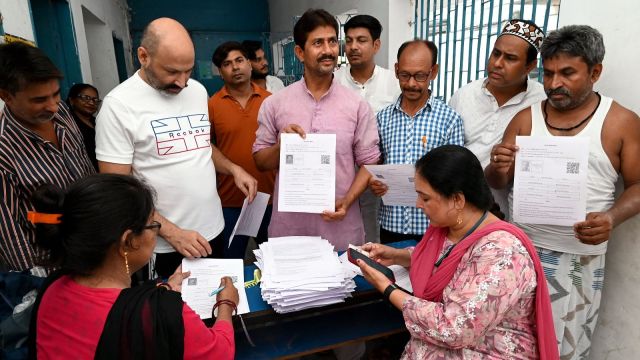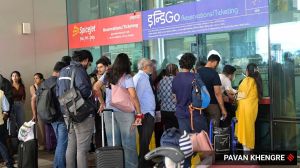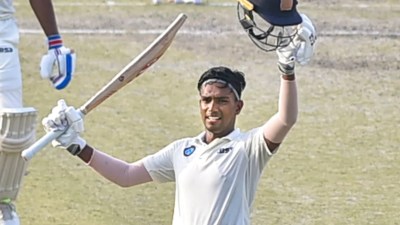Hearing petitions challenging the Special Intensive Revision (SIR) of the electoral roll in Bihar, the Supreme Court said Wednesday that the Election Commission (EC) expanding the list of documents accepted for proof of identity to 11, compared to only seven for the summary revision in Jharkhand earlier, showed that the process is “voter-friendly and not voter exclusionary”.
A bench of Justices Surya Kant and Joymalya Bagchi also said that according to Section 21 of The Representation Of The People Act, 1950, “it is totally within the subjective domain” of the EC on “how, when” it would “go for a special (intensive) revision”.

“The documents for the summary exercise compared to the enumeration form as of now, more or less overlap with something more…They are expanding the number of documents of identity… We understand your exclusionary argument may be with regard to Aadhaar, but the expansion of the number of documents from what was followed in a summary revision to an intensive revision is, in fact, voter-friendly and not voter-exclusionary. It gives you more options,” Justice Bagchi said.
“See, it is seven items (in 2003). And now there are 11 items from which you can identify yourself as a citizen,” the judge said.
“If somebody says all 11 documents are required, then it would be an anti-voter approach. But if it gives a long list of documents and says give any document which is reliable…?” remarked Justice Kant.
The court’s remarks followed a contention from Senior Advocate A M Singhvi, appearing for the petitioners, that the SIR process was exclusionary.
Reiterating his argument, Singhvi said Aadhaar, which has the widest coverage in Bihar and elsewhere, is excluded from the list of acceptable documents but the Indian passport, which has less than 1-2% coverage, is included. Water, electricity, gas connection too are excluded, he said. “What’s happening is in number terms, you are retaining to impress. But what is the nature of the document you want? The nature is minimum coverage document,” he said.
Story continues below this ad
Singhvi also referred to the February 6, 1995 Supreme Court ruling (Lal Babu Hussein & Others vs Electoral Registration Officer & Others), which said that where a name already entered is required to be deleted, it must be presumed that before entering the name the concerned officer must have gone through the procedural requirements under the statute. The senior counsel argued that therefore, procedure has to be followed before deleting any name. “First of all there must be an objection,” he submitted.
Singhvi also questioned the timing of the SIR exercise. “What is this urgency in July to come up with such a half-baked scheme with such imprecise language on an ad-hoc basis where the effect for the man or woman actually excluded is…they lose the right to vote,” he asked.
He contended that the exercise shifts the burden upon the voter to produce any of the documents to prove citizenship so that they can remain on the rolls. Singhvi added that “non-inclusion is a delightful word — it’s de-facto deletion”.
Appearing for petitioner NGO Association for Democratic Reforms (ADR), Senior Advocate Gopal Sankaranarayanan questioned the power of the EC to carry out the exercise. “We are not just challenging the procedure, we are challenging since inception, they could never do this. It’s never been done. It’s the first time in history. If this is permitted to happen, God knows where it will end,” he submitted.
Story continues below this ad
Justice Bagchi referred to Section 21 of the RP Act dealing with the preparation and revision of electoral rolls: Section 21(1) deals with preparation, section 21(2) with summary revision and section 21(3) with special revision. The judge pointed out that “both sub section (1) and (2) are qualified with the words “prescribed manner”. But sub section (3) says “in such manner as it may think fit”.”
“The words ‘in such manner as it deems fit’ gives ECI the elbow space… it is totally within the subjective domain of the ECI to decide how, when I am going to go for…special revision,” the judge said.
Justice Bagchi also said the residuary power of the EC flows from Article 324 of the Constitution as well.
Sankaranarayan argued that the EC cannot exclude any voter from the electoral roll so casually. “Who has allowed the EC to do this, which law, what authority?” he argued.
Story continues below this ad
Justice Bagchi said it is a battle between a Constitutional entitlement and Constitutional right, between the EC’s power of superintendence of elections under Article 324 and the right to vote under Article 326.
Advocate Prashant Bhushan, also representing ADR, said Booth Level Officers (BLO) were filling up enumeration forms and signing them which is why “a lot of dead people” have made it to the draft roll. Bhushan claimed that the EC had the searchable version of the draft roll on its website till August 4 but made it “non-searchable” a day after Lok Sabha Opposition leader Rahul Gandhi raised the issue of voter list manipulation at a media briefing.
The court pointed out that statutory rules — Rule 10 of The Registration Of Electors Rules, 1960 — only require the EC to publish the draft roll in the office of the Electoral Registration Officer.
Bhushan demanded that the EC should publish the list of the 65 lakh excluded voters with reasons for their omission, to make the draft list on the ECI website searchable, and give names of persons recommended/ not recommended by the BLO.
The hearing will continue Thursday.









